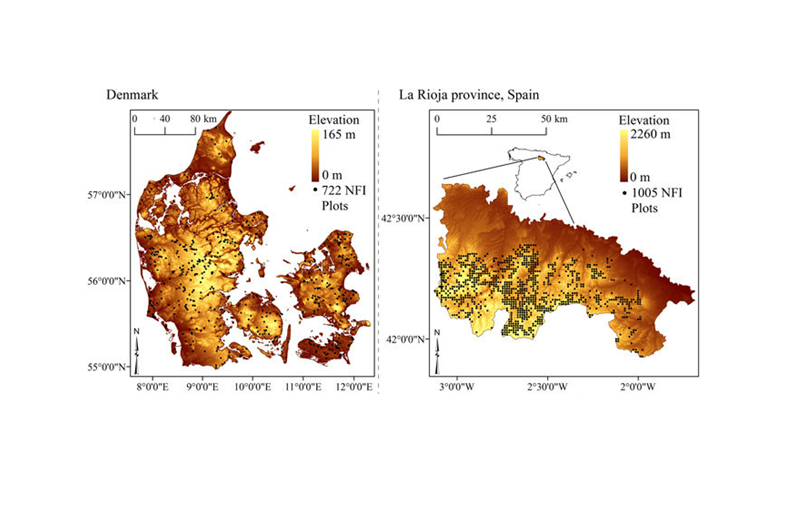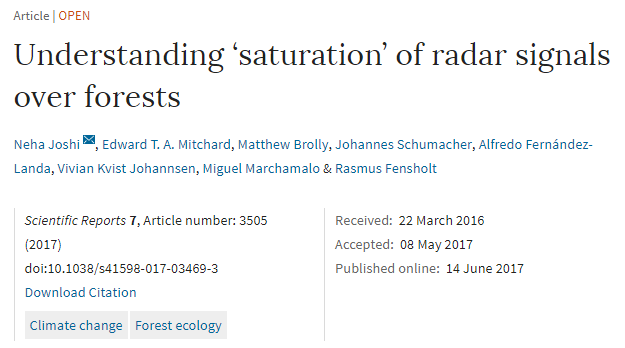Alfredo Fernández-Landa, researcher from the company AGRESTA S. Coop., and Miguel Marchamalo Sacristán, from the Universidad Politécnica de Madrid, participated in the paper «Understanding ‘saturation’ of radar signals over forests” published in Scientific Reports, a Nature journal. The investigation was led by Neha Joshi from the University of Copenhagen, and, as well as the Spanish scientists, researchers from the universities of Copenhagen, Edinburgh and Brighton were also involved.
The apparent loss of sensitivity of radar to detect changes in carbon accumulated in forests above a certain quantity of biomass, what is known as the “saturation point” of the radar signal, is one of the principal limitations of this technology. This work contributes to the understanding of satellite radar beyond this “saturation point”.
The article shows how, using this technology, an understanding of the impact of management practices and disturbances on forest structure can help to accurately estimate CO2 emissions from the forest into the atmosphere. Radar satellites are increasingly important instruments in the fight against climate change. This work is another step forward in analysing how radar signals behave when small changes are produced in the structure of a forest.
See ARTICLE


